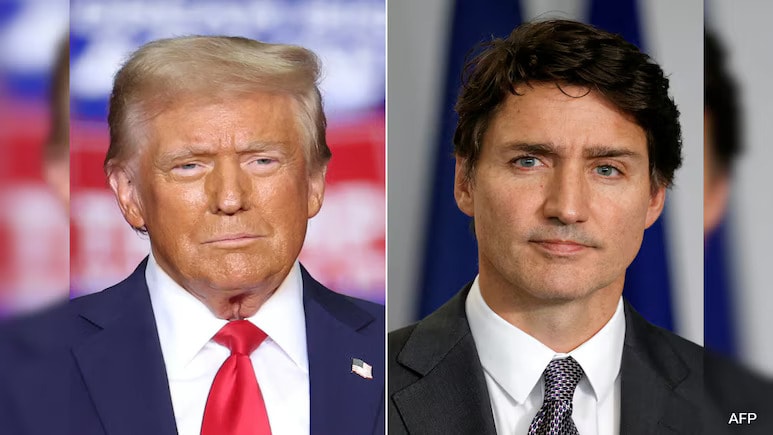Canada’s Prime Minister Justin Trudeau and Mexico’s President Claudia Sheinbaum were quick to respond to US President Donald Trump’s tariffs with their own measures, with the tit-for-tat moves likely to impact global supply chains significantly.
Trudeau said Canada will impose 25 per cent tariffs on Canadian $155 billion in US imports, adding that Canadian $30 billion would take effect from Tuesday and the rest in 21 days. China too vowed “corresponding countermeasures” against the new tariffs.
Sheinbaum, meanwhile, said she had told her economy minister “to implement Plan B that we have been working on, which includes tariff and non-tariff measures in defense of Mexico’s interests”. She also hit back at Washington’s accusation that her government has an “intolerable alliance” with drug trafficking groups. “We categorically reject the slander made by the White House against the Mexican government about alliances with criminal organisations,” Sheinbaum wrote on social media platform X.
Trump has signed an executive order imposing 25 per cent tariffs on all goods from Canada and Mexico starting on Tuesday except Canadian energy products, which will be subject to a 10 per cent duty. Citing a “major threat” from illegal immigration and drugs, he also imposed an additional 10 per cent tariff on good from China, which already face various duties.
Trump invoked the International Emergency Economic Powers Act in imposing the tariffs, with the White House saying “the extraordinary threat posed by illegal aliens and drugs, including deadly fentanyl, constitutes a national emergency”. The aim is to hold all three countries “accountable to their promises of halting illegal immigration and stopping poisonous fentanyl and other drugs from flowing into our country,” the White House added.
He has also pledged to impose duties on the European Union in the future. He has also promised tariffs on semiconductors, steel, aluminum, as well as oil and gas. “Tariffs are a powerful, proven source of leverage for protecting the national interest,” the White House said.
US imports from Canada and Mexico covered nearly $900 billion in goods as of 2023, and supply lines between the three North American neighbors — who share a trade agreement — are deeply integrated. Mexico and Canada also account for significant US agriculture imports, meaning the duties could add to prices of popular foods like avocados and tomatoes. Nearly 80 percent of Canadian goods exports go to the United States, amounting to some $410 billion in value, according to Statistics Canada.
Mexico’s exports to the United States represented 84 percent of the goods it sold to the world last year, according to its National Institute of Statistics, amounting to over $510 billion. More than 80 percent of US avocados come from Mexico — meaning higher import costs could push up prices of items like guacamole.




